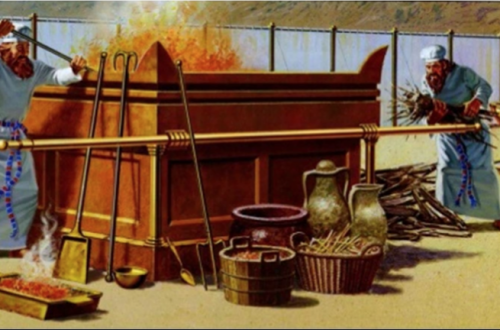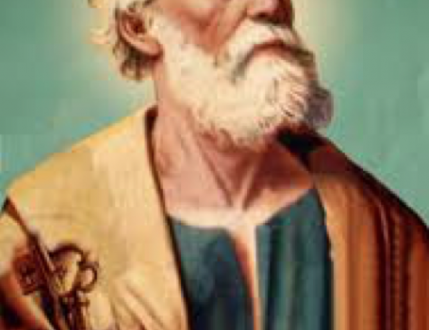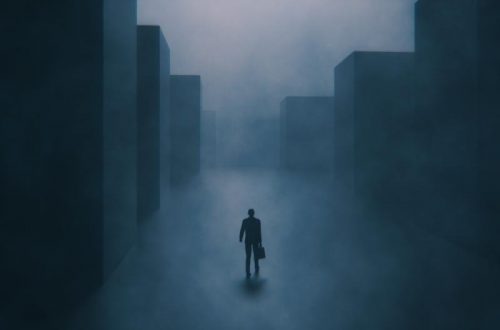A new beginning for God’s people
Exodus 12:1–14 is part of the lectionary readings for the fourteenth Sunday after Pentecost, which is September 6th. Previously, God revealed to Moses that He would harden Pharaoh’s heart.
Even though the Lord would perform increasingly severe “signs and wonders” (7:3) throughout Egypt, the nation’s ruler would refuse to listen to Moses. Yet, Pharaoh’s stubbornness would only intensify the great “acts of judgment” (v. 4) the Lord would use to bring His people out of Egypt. Furthermore, these miraculous deeds would prove to the Egyptians that the God of Israel was the sovereign Lord of the universe (v. 5).
It’s helpful to remember that Egypt was polytheistic, which means the Egyptians believed in many gods and goddesses. Even today, scholars are uncertain about the total number of pagan deities the Egyptians venerated. Most lists contain approximately 80 idols.
Because Pharaoh remained unrelenting in his refusal to let the chosen people leave Egypt, God launched a series of 10 plagues that would devastate the nation. Bible scholars have noted that the number 10 symbolizes completeness, which indicates the Lord’s wide-ranging and thorough judgment.
For several months ending in March or April (corresponding to the Hebrew Passover celebration), one plague after another wreaked havoc on the Egyptians. In Egyptian religion, the chief deity was the sun god, Re. Next in line was the ruling pharaoh of Egypt, who was considered the son of Re. Hence, Pharaoh himself was reputedly a deity in his own right.
Understanding the Egyptian belief system adds a whole new dimension to the Exodus account. It’s as if a contest occurred between the true God (along with Moses) on the one side and all the false deities of Egypt (along with Pharaoh) on the other side.
In the first plague, the waters of the Nile River were turned to blood (vv. 14–25). This calamity was a condemnation of Nilus, the sacred river god.
The second plague involved a horde of frogs (8:1–15), in which Heqet, the goddess of reproduction, was judged. In the third plague, a swarm of gnats invaded the land (vv. 16–19). This episode was a denunciation of Seb, the god of the earth.
The fourth plague brought an infestation of flies (vv. 20–32), and signified the repudiation of Khephera, the sacred scarab. In the fifth plague, Egpyt’s livestock was wiped out (9:1–7). The event was a condemnation of Apis and Hathor, the sacred bull and cow god.
The sixth plague led to an outbreak of boils on the nation’s citizens and animals (vv. 8–12) and was a rebuke of Sekhmet, the goddess with power over disease. In the seventh plague, hail pummeled Egypt (vv. 13–25) and denoted a repudiation of Nut, the sky goddess. The eighth plague brought a swarm of locusts on the land and signified a judgment on Serapis (10:1–20), the god protecting crops from locusts.
In the ninth plague, darkness spread over Egypt (vv. 21–29), signifying a condemnation of the sun god, Re. The tenth and final plague resulted in the death of the firstborn of the nation’s people and animals (11:1—12:30), which meant that Ptah, the god of life, had been denounced.
God accomplished at least three objectives by sending the 10 plagues on the Egyptians. First, He showed them that He is the Lord and the one true God.
Second, the Creator demonstrated His concern for the Israelites. Third, He proved Himself superior to the Egyptians’ many false gods and goddesses.
When God spoke to Moses and Aaron (12:1), He apparently never revealed to them how many plagues He intended to send upon the Egyptians. The brothers neither knew what the next plague would be nor which would be the one to break Pharaoh’s will. Moses and Aaron simply obeyed.
Moses was 80 years old at the time, and Aaron was 83 (7:6). If age was any factor in their selection to be leaders, advanced age was a positive factor.
Specifically, the brothers’ respective ages indicated they possessed a degree of wisdom and experience. God could have chosen a young man to confront Pharaoh, but instead He chose two elderly men—Moses and Aaron.
What God was about to do for His people would be momentous. So, when the Israelites counted months, the month in which the exodus from Egypt occurred was to be remembered first (12:2).
After all, the Israelites’ freedom from Egypt was a new beginning for them as God’s people. Therefore, even though the events that were about to occur would happen in the seventh month of the civil year (known as Abib, which straddled March and April in our modern calendar; 13:4), God declared that the month of Abib should be recognized as the first month of the religious year.
God revealed that, while striking down the firstborn of Egypt, He would pass over the people of Israel. This act would lead to the Israelites’ deliverance from bondage. So, the celebration of Passover would become the most significant of holy days for the Israelites. The account of the Passover would be recited repeatedly to remind each new generation of the Lord’s redemption of His people.
The Lord told Moses and Aaron to let the entire covenant “community” (12:3) know that on the “tenth day” of this “first month” (v. 2), they were to remember His act of deliverance by formally celebrating the occasion. God’s instructions on how to celebrate the event were the only regulations He gave the Israelites while they were still being held as slaves in Egypt.
To institute this day of commemoration, each Israelite household was to begin making preparations by selecting a lamb for roasting. If there were too few people in a household to eat a whole lamb, two or more households could share one (v. 4).
The lamb the Israelite households were to select for roasting was a one-year-old male that had no physical defects (in other words, being free from any blemishes or diseases). Moreover, the animals could come from either “the sheep or the goats” (v. 5).
The Lord, through Moses and Aaron, directed the Israelites to take special care of the animals selected for slaughter until twilight on the fourteenth day of Abib (v. 6). At that time, members of the covenant community were to apply the blood from the animals to the two sideposts and the top of the doorframe of the houses where participants consumed the “lambs” (v. 7).
The tenth plague would be unlike the other plagues in its scope and severity, during which God promised to protect His chosen people (also 9:7, 26; 10:23). Due to the nature of the final calamity, each Israelite family had to prepare for and act on God’s warning. By doing so, they would demonstrate their faith in the Lord’s provision for their lives.
Exodus 12:8–11 states that on the night of the Passover, the Israelite households were to roast the whole lamb with its head and legs intact. In addition to eating the lamb, the participants were to eat bitter herbs (to remind them of their years spent in oppression) and unleavened bread (to remind them of the haste with which they would leave Egypt).
God directed the Israelites to consume the entire meal quickly and with an air of expectancy. Therefore, they should have their robes tucked into their belts, their sandals on, and their staffs in hand. If any meat remained after the meal, it was to be burned before daybreak.
Exodus 11:4–6 reveals that at about midnight, the Lord had sworn to go throughout the land, killing the firstborn sons of the Egyptians from the highest to the lowest social levels. He would also kill the firstborn offspring of the Egyptians’ livestock. Because of the massive number of deaths that would occur, the Egyptians would mournfully wail through the night.
Six of the previous nine plagues had been initiated with the use of Moses’ or Aaron’s staff. This final plague would fall on the Egyptians directly from God, without the intervention of Moses or Aaron. In the end, it would be clear to both the Egyptians and the Israelites that the hand of the Lord inflicted this judgment.
In contrast to the wailing of the Egyptians, God said there would be peaceful silence among the Israelites. The Egyptians’ wailing and the Israelites’ silence would mark the distinction between God’s favor for those who worship Him and His judgment on those who venerated heathen gods and goddesses (v. 7).
After the plague on the firstborn, the ruler’s officials would bow before Moses, beg that he leave, and request that he lead the Israelites away from Egypt. Moses would honor their entreaty by delivering his people from slavery (v. 8).
When the above occurred, the Israelites were to ask their Egyptian neighbors for “articles of silver and gold” (v. 3). The Egyptians, whom God had made “favorably disposed” (v. 3) toward both Moses and the Israelites, would willingly hand over their valuables. After all, by then they would have suffered through 10 destructive plagues.
The preceding details are recapped in 12:12–13. Through Moses and Aaron, God once again informed the Israelites what He was about to do.
By sending nine plagues, God had judged both Pharaoh and many of the pagan deities of Egypt. Now in one final calamity, He would execute “judgment” (v. 12) on all Egypt’s false “gods.”
The Lord asserted the right to do so, for He is the one true God, as well as the Creator and moral Governor of the universe. That night, the Lord’s holy presence would roam throughout Egypt, resulting in the death of the firstborn offspring of both humans and animals. Yet, those who had obeyed God and applied blood to their doorframes would be spared.
The night of Passover was to be only the beginning of the Israelites’ observance. God wanted His people to commemorate the event by celebrating a week-long festival (v. 14).
On the first day of Passover, the Israelites were to remove all yeast from their houses (v. 15). Then, for the following seven days—representing the beginning of the exodus from Egypt—they were to eat bread that had been made without yeast. A “sacred assembly” (v. 16)—that is, a time to worship God—would mark the beginning day and ending day of the festival.
God’s instructions are restated in verses 17–20, where the week-long festival is called the “Feast of Unleavened Bread.” Also reiterated is the command for the Israelites to cast out those who, during the observance, ate anything with yeast in it. God expected everyone within the covenant community to participate, and He even made an allowance for Gentile (“foreigner”) converts to observe the ritual with the Israelites.
Moses, after being told what God wanted the lawgiver to say, gathered the elders of Israel and conveyed to them the Lord’s instructions regarding the Passover (v. 21). Moses told them to apply the lamb’s blood to their doorframe with a “bunch of hyssop” (v. 22).
Hyssop was a common plant of the Near East. It had stiff, hairy stems and leaves that could hold water or blood well.
Moses also told the elders that once the Israelites had entered their houses near the end of the day, they were not to leave their homes until daybreak. As the Lord went throughout the land, He would notice the doors marked with blood.
No one within those homes would be harmed. The “destroyer” (v. 23), who would take the lives of Egypt’s firstborn, was probably an angel of the Lord.
Moses reminded the elders that the Passover observance was not to be a onetime event, but an annual celebration. Each generation of Israelites was to be taught both the reenactment and the meaning of the Passover (vv. 24–27).
Following Moses’ instructions, the Israelites bowed down and worshiped the Lord, realizing that their deliverance was about to occur. Then, they returned to their homes, where they observed the Passover ritual for the first time (v. 28).
At midnight, with the Israelites safe inside their homes, the Lord performed the most horrifying of the 10 plagues. All Egypt’s firstborn sons, regardless of their social standing, died that very hour. Even the firstborn among the Egyptians’ livestock perished (v. 29).
In the middle of the night, Pharaoh and all other Egyptians were awakened. Perhaps the wailing of one household stirred a neighboring family, who joined in the wailing when they found that tragedy had also struck them.
Whatever the case, the entire nation had begun to mourn its massive losses (v. 30). Previously, God had told Moses, “I know that the king of Egypt will not allow you to go unless he is forced to do so by a powerful hand” (3:19). Now the Lord’s awesome power had struck, causing death to touch every Egyptian family.
Key ideas to contemplate
Circumstances might threaten to overcome us, as they did for the Israelites languishing under slavery in Egypt. Yet then, as now, circumstances have no real power over God’s spiritual children, especially when they are trusting in Him. The simple truth is that the safest place we could possibly put our trust is in God.
1. Affirming God’s concern for us. The Israelites, being trapped in slavery, cried out to the Lord and He heard them. Since God was faithful to His promises, He remembered His covenant with Abraham, Isaac, and Jacob. Moreover, just as God was concerned about their physical descendants, so too He is concerned about us, the patriarchs’ spiritual descendants.
2. Appreciating what God can do in us. God had been preparing Moses to lead the Israelites out of Egypt. Also, at the right time, the Lord instructed Moses and the chosen people to prepare for the day of their redemption through the observance of the Passover ritual.
This side of Calvary, we have redemption through faith in the Lord Jesus. Because He is always with us, we should never take too lightly what He can do in our lives.
3. Finding our purpose in God. The Lord intended to glorify His name by using Moses and Aaron to free His people from Egyptian bondage. In turn, they faithfully communicated God’s message of deliverance to His chosen people. God also has a purpose for us, and that is a very real comfort, no matter how meaningless or hopeless our prospects seem to be for the moment.
4. Finding our life aims in God. As hard as life in this world sometimes turns out to be, God promises to compassionately carry us through. He is not restricted by our limitations. Indeed, the Creator’s power is above and beyond our shortcomings.
God is inviting us to be part of His great plans. Rest assured, He can and will use us in extraordinary ways to carry out His will.




